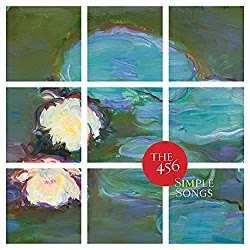The Bowie estate has left no stone unturned digging up every conceivable track he made during the early part of his career. There's been a constant flow of product from the Space Oddity and now The Man Who Sold The World eras, in pretty much every conceivable format. There have been 45 RPM boxed sets of demos, a 45 box looking at just the "Space Oddity" single, CD boxes, LP boxes, picture discs, new mixes, you name it. Yes, there's repetition galore, but each project does offer fascinating twists and turns in his career, even in his choices for mixes, instruments and vocals in individual songs. You can also go broke gathering up all the various releases. And that's just for 1969 and 1970.
Wisely the powers have backed off a little on the expensive variations for this latest effort. They've wrapped up all the loose bits and live efforts from The Man Who Sold The World album in this relatively simple and cost-efficient two-disc set. It's a nice, hard-cover mini-book set, with 52 glossy pages of notes and memorabilia photos, and several different audio sources. Disc one is completely made up of a hour-long BBC radio show hosted by John Peel in February of 1970, while disc two has some alternate single mixes, a couple of different shows, and some brand-new and quite different mixes of stray tracks by original producer Tony Visconti.
The BBC Sunday Show is quite important in Bowie lore, as it features the first appearance of Mick Ronson in his band, having joined just two days before. Along with Visconti on bass and John Cambridge on drums, this became The Hype, the forerunner to the Spiders From Mars. While occasionally a bit sloppy, it was a strong live performance, and a great overview of early fame Bowie. Shockingly they didn't do his only hit, "Space Oddity," but instead jumped from Jacques Brel and Biff Rose covers ("Amsterdam," "Buzz The Fuzz"), album cuts like "Janine" and "Wild-Eyed Boy From Freecloud," and brand-new and unreleased future favourites like "The Width Of A Circle," where you hear Ronson stretch out.
Disc two is a mixed bag of curiosities and revelations. In February of 1970, Bowie's old mime teacher Lindsay Kemp asked him to reprise his role in the performance Pierrot In Turquoise for a Scottish TV taping. It ended up quite altered from its 1967 version, and Bowie now supplied five songs with vocals and slim accompaniment, trifles really, based on the plot. "Threepenny Pierrot" is notable as it is a rewritten version of "London Bye. Ta-Ta," but that about it for excitement. Much better is a March 1970 return appearance of The Hype on BBC, this time recording four tracks in their studio showcasing the tough new band. There's a scorching, Ronson-led version of Bowie's favourite Velvet Underground cover, "Waiting For The Man," two cuts from the not-yet recorded Man Who Sold The World LP, "The Supermen" and another "The Width Of A Circle," and one already-released song, "Wild-Eyed Boy From Freecloud," Sadly the performances are marred by John Cambridge's drumming style, not a fit for the band, and Ronson would have him sacked in favour of future Spider Woody Woodmansey within days.
Much second-guessing and trial and error went into attempts to find a follow-up hit for Bowie to "Space Oddity", with new mixes, new parts and completely new recordings going into several tracks, none of them working out. These alternates are pretty cool, including "London Bye, Ta-Ta." Originally it was more like his mid-60's, Anthony Newley-styled British numbers, but in a proposed 45 mix, it earned cool back-up soul singers and a new, funky arrangement. "Memory Of A Free Festival" was split into two parts, for the A- and B-sides, and "Prettiest Star" was recorded and released as a huge failure, less than a thousand copies sold, despite featuring Marc Bolan on lead guitar. It would again appear in a new recording three years later as an album track on "Aladdin Sane."
Last year, Visconti presented a brand-new mix of The Man Who Sold The World album, which he retitled The Metrobolist, an early title for the set. To finish up on this time period, he's done new mixes for the non-LP tracks, including "Prettiest Star," "London Bye, Ta-Ta," and "Holy Holy." The nice thing about Visconti's new mixes is that he's willing to throw in some radical differences, including an extended extro on "Prettiest Star," and a much more playful arrangement on "London By, Ta-Ta."
Finally, they couldn't quite let The Man Who Sold The World rest without one final vinyl for those with too much disposable income. Back to basics, you can buy the original album, with the original mix, in the way most North Americans saw it, the reissue with the leg-kick cover from 1972, post-Ziggy. Anyway, I'm already looking forward to the forensic digging they must be doing for the next album, the beloved Hunky Dory, and I certainly hope there are this many fun extra tracks to hear.











